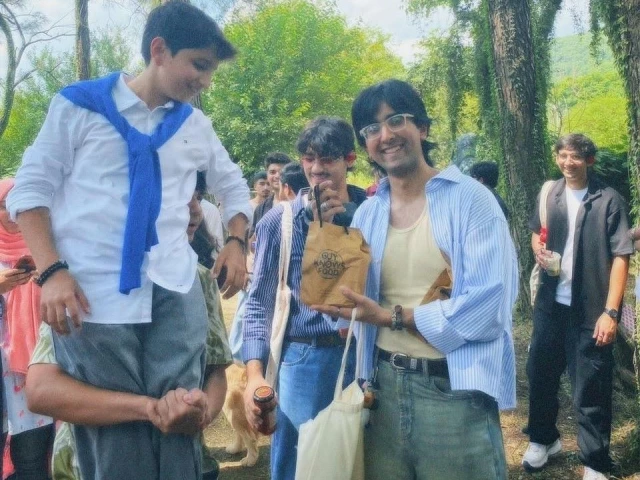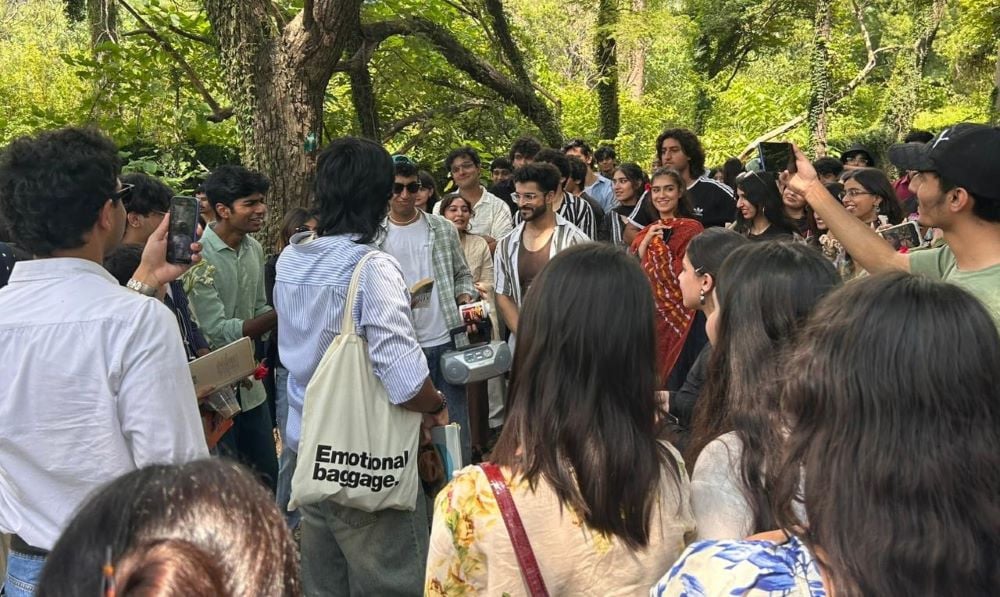Performative male trend hits Islamabad
From ginger cats to vintage stereos, contestants bring online satire into offline world

Over the weekend, the Islamabad Farmer’s Market set shop with its stalls of organic produce and artisanal soaps in the foothills of the Margallas as it does every weekend, when it was taken over by a crowd of young men and women decked in roses trailing out of tote bags and waving copies of trending literature.
A quick swipe through any of these youngsters’ TikTok or Instagram would reveal that tote bags, baggy fits, matcha drinks, Labubu dolls and the latest viral book as an accessory make up a unique style. One that is an amalgamation of social media trends and is generally assumed to be popular among women. However, when men do participate, they risk being called “performative”.
In the ever-evolving lexicon of the internet, the performative male is a man who claims interests in things that appeal to women for the sake of standing out and winning their attention. He pretends to read Pride and Prejudice and supports feminism with the hidden agenda of scoring a woman for himself. On social media, the term performative is used to identify these men by relegating them to meme-status and joking about them.

Following the rise of community-level public gatherings with a theme that invites people with similar interests, from cake picnics to art workshops, the performative male contest has also made its way to cities in Pakistan. The idea is that men, as well as women, get to dress up in outfits that mock the fraudulent personality and bring the online social commentary to a real-life communal space.
“We organise events that bring young people in the city together, allowing them a third place to socialise and network,” said the event organiser, House5 Founder Ahmed Kon, while talking to The Express Tribune. “We have hosted board games and karaoke nights in the past, but those only had a capacity of 30 to 35 people. This is our biggest event yet. People showed a lot of interest after one of our posts went viral.” The post in question, which is a simple video advertising the time and venue of the contest, was shared around 6,000 times on Instagram, signalling the extent to which the theme resonated with people.
Around 100 people showed up to the event, which was to take place at the weekly farmer’s market in Islamabad. After a few hiccups pertaining to the market’s policy not allowing single men without families into the venue and the organisers having to explain the concept of a performative male to the management, the event took off under the shade of the woods behind the main market area.

Young men lined up to show off their performative styling and props that ranged from a ginger cat to a vintage stereo box, while the largely female audience voted on if they were performative enough. Participants attempted to win points by handing out flowers and saying lines such as, “I love women”, “I support women’s rights” and “I mourn the fact that women experience constant oppression in this world.” One of the few child contestants, 13-year-old Samad, followed his heartfelt message for women with, “Oh, and one more thing, I hate period cramps!”. A cry that was welcomed with loud cheers and crowned him the winner.
Filza, an attendee, while appreciating the initiative as a community event, pointed out the irony of men making fun of performative males by becoming one themselves. Since the conception of the term, cultural critics have expressed the concern that generalised tokenisation of certain behaviour might discourage young men from embodying healthy values like caring about women’s rights or being emotionally expressive. However, it is events like these that bring subcultures of this kind into the open and allow discussion on larger sociocultural dynamics.



















COMMENTS
Comments are moderated and generally will be posted if they are on-topic and not abusive.
For more information, please see our Comments FAQ